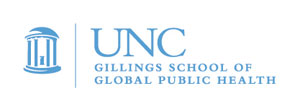
On Tuesday, March 27, a seminar co-hosted by the National Academy for Social Insurance and the University of North Carolina Gillings School of Global Public Health drew a large, highly engaged audience of students, faculty, and local community members.
The forum included a number of speakers and featured presentations by Jonathan Oberlander, Pamela Silberman, and Benjamin Veghte. (Click here to view videos). Each expert gave a 15-20 minute presentation, followed by a panel discussion and open forum with attendees. A reception immediately followed the seminar, where Christen Linke Young, Deputy Secretary for Policy and Operations at the North Carolina Department of Health and Human Services, described the state’s efforts to consider social determinants of health in providing for the state’s Medicaid recipients.
Highlights:
“Can Obamacare Survive the Trump Administration?”
Jonathan Oberlander, professor and chair of Social Medicine at the School of Medicine at the Gillings School of Global Public Health, discussed the Trump Administration’s efforts to repeal and replace the Affordable Care Act (ACA). He pointed out that despite great efforts by Republicans to repeal and replace Obamacare, their small margin of control in the House and Senate has made policy change difficult.
“The two political parties are more polarized now than at any point since the 1870’s, when the U.S. had just fought the Civil War,” he said. “This means that there’s no middle. What was possible for Medicare in the 1970s and 1980s is not feasible for Obamacare. Obamacare is an existential fight between the two parties. I believe that much of the debate over Obamacare has nothing to do with the Affordable Care Act, but is a front in a broader war between the two parties.”
Oberlander went on to say that every action has a reaction and in some ways, the effort to get rid of the ACA has popularized it, spurring a movement to improve and expand it. He predicted that a Democratic nominee for president in 2020 would make either Medicare for All or Medicare for More a key platform.
A video of Jonathan Oberlander’s entire presentation can be viewed here.
“Medicaid: A Program for All Low Income, or Just the Deserving Poor?”
Pamela Silberman, director of the Executive Doctoral Program in Health Leadership, Health Policy and Management at the Gillings School of Global Public Health, took up the question of Medicaid’s place in the health care debates. Medicaid was created in 1965, the same year as Medicare, as an entitlement program tied to welfare. It began as a program for poor people who could not work—children, elderly, disabled and some parents with children. It has changed over time, so that now it is part of a three-prong strategy for expanding health insurance coverage: Medicaid for the poor, employer-based coverage for working Americans, and the marketplace for all others. Recent Congressional reform efforts would have meant the loss of coverage for 14-23 million Americans, according to the CBO.
“Fortunately, the proposals did not go through,” Silberman said, “but what we are seeing now is health care reform not through legislative process, but through the administrative process. The Administration wants to take us back to the old type of Medicaid, which was a type of welfare we limit to only the deserving poor. For instance, some states are proposing time limits for receiving Medicaid, or they want to charge premiums that are unaffordable to poor families.”
She described how North Carolina, which chose not to expand Medicaid, has nevertheless been taking action to transform services. This includes creating HMOs that combine commercially-managed programs with provider-led organizations; replacing a system that separated mental health, physical health, and services for people with intellectual and developmental needs to one that delivers whole person care; and designating $350-500 million to address social determinants of health (in particular transportation, housing, food insecurity, and toxic stress).
A video of Pam Silberman’s entire presentation can be viewed here.
“Medicare for All, Medicare for More”
Benjamin Veghte, Vice President for Policy at the National Academy of Social Insurance, highlighted the role of the Academy as a non-partisan source for evidence-based studies that help legislators make policy decisions.
Veghte discussed the health care policy challenge in terms of Medicare’s role: For the 24 million Americans who are currently uninsured, and for those who are insured but find affordability difficult, an expansion of Medicare seems very appealing. However, there are considerable challenges to making changes to Medicare.
An upcoming Academy study panel will analyze the challenges that changes to Medicare would create, including how changes would affect employer health care coverage, the ACA exchanges, Medicaid, benefits provided, and public budgets. He touched upon one of the biggest questions around expansion of Medicare—how will it be financed?
Veghte described three genres of proposals: Raising the age limit, lowering the age limit, and allowing a buy-in to the Medicare program. The most far-reaching of these proposals aim towards universal health care coverage.
“Universal health care does not have to be a conservative versus progressive issue,” said Veghte. “We could get to universal coverage either way, as many other countries have done, relying more or less on individual premiums or public subsidies.”
The Academy’s non-partisan study panel on Medicare will deliver options for expansion based on realistic scenarios that can be used by politicians when proposing future legislation.
A video of Benjamin Veghte’s entire presentation can be viewed here.


Raising retirement age to 70
Raising retirement age to 70 years old for an auto mechanic who has worked since 20 in a profession where he is paid the least in the service department, service writers service managers, and owners being paid the lions share. Working in the harshest conditions winter down to 20 degrees f up to 110 deg f in the summer. Or under the hood of a hot engine 195 F, Working with chemicals, oil, brake dust etc all known to cause cancer. Removing wheels weighing up 75lbs each, wrestling with engines and transmissions, squeezing under dashes, under cars, leaning over engines sometimes for hours a day, down on your knees then up on your feet 10-15 times a day/. It takes its toll physically. With all this added up, I ask you how many people will still be able to do this at 60, 65 and now 70? How many employers will hire a man of 65 to do this job, how many at age 70, or 72. How productive will he be at this age? what kinds of wages will he make, or has he made . Not enough to fund a retirement account, he gets no bonuses, he pays his own medical benefits already. If he is able to own his own home, he will pay $300-350 in property tax, car insurance $100, elec ,water, phone, food $300-400. a month.$1000 a month at current rates just to exist. What a great country you pay in for 30-50 years of your life,then live 5-10 years in retirement as a pauper. There is one thing for certain in America you don’t get sick or you don’t get old here, this country has no place for you.